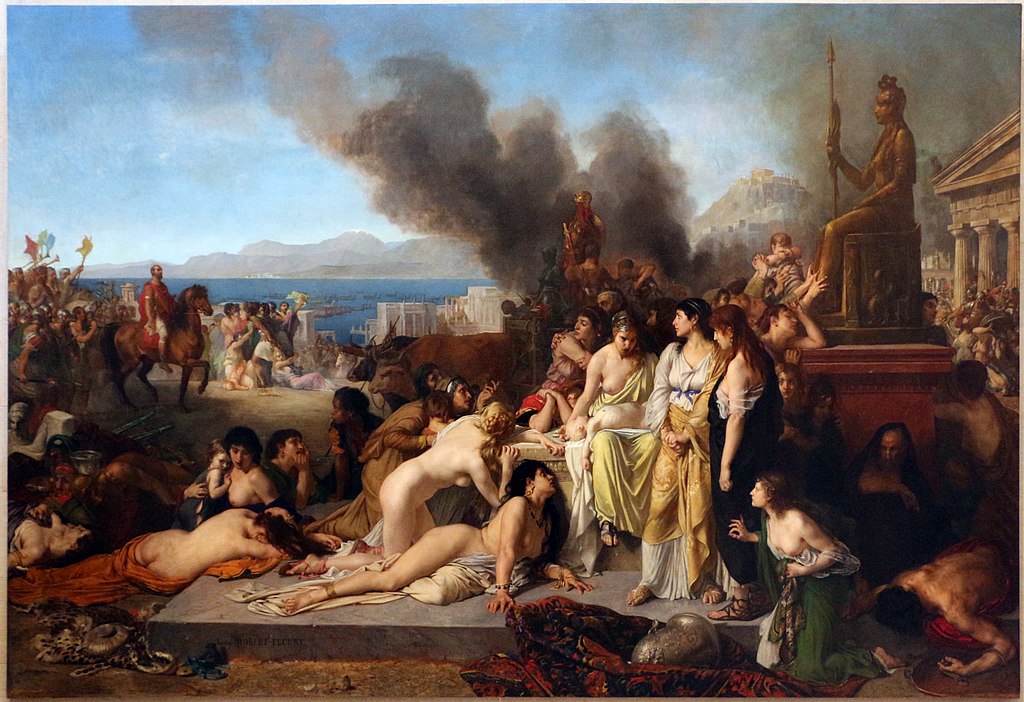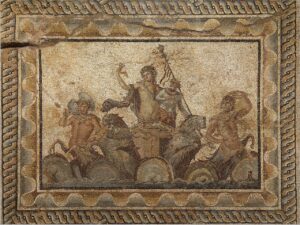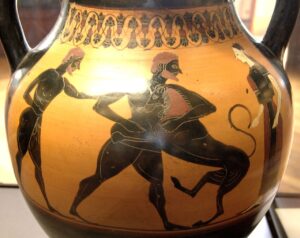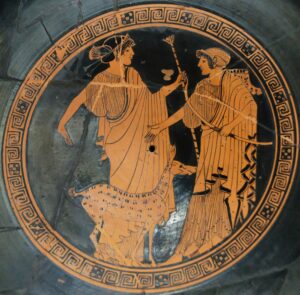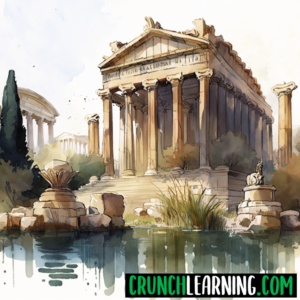The period of Roman Greece (146 BCE- 476 CE) was the end of the independent Greek city-states and the beginning of the Roman Empire’s rule in Greece. As such, historians consider Roman Greece to be the final of the 4 main historical periods of ancient Greece. In fact, the period of Hellenistic Greece came immediately before Roman Greece, which was a period of significant political, social, and cultural change for the Greeks.
The Romans brought with them a new political and cultural order, and the Greeks were forced to adapt to the demands of their conquerors. Despite this, the Roman period in Greece was also a time of great transformation and growth, as the Greeks absorbed many of the ideas and institutions of their conquerors and continued to develop their own unique cultural and intellectual traditions.
Roman Conquest and Rule of Roman Greece
During the era of Roman Greece, the Roman Republic and later the Roman Empire gradually gained control over Greece and established a province known as Achaea. The Roman conquest of Greece was part of the larger Roman expansion into the Mediterranean world, as the Romans sought to establish their dominance over the region and control its trade routes. The conquest was led by the Roman general Lucius Mummius, who defeated the Greek city-states in a series of wars and imposed Roman rule over the region.
The most significant battle of the period of Roman expansion into Greece was the Battle of Corinth, which occurred in 146 BCE. The battle was fought between the Roman Republic and the Greek city-state of Corinth along with its allies in Greece. The battle was a significant conflict in the history of ancient Greece and is generally viewed as the event that caused the immediate ‘fall’ of the ancient Greek civilization, because after its victory Rome took control of the Greek territory and included it in its larger empire. As such, this Battle of Corinth marked the end of Greek independence and solidified Roman control over the eastern Mediterranean.
Under Roman rule, the city-states of Greece lost much of their autonomy and were governed by Roman officials. The Romans also imposed their own culture and religion on the Greeks, which led to a gradual decline of the traditional Greek culture and religion. For instance, during the era of Roman Greece, several Roman Emperors oversaw the construction of temples and other buildings in Greece. More specifically, Roman Emperor Julius Caesar began construction of the Roman Agora in Athens, which was later finished by Augustus.
Furthermore, Roman Greece was divided into provinces and governed by Roman officials, and the Greek city-states lost much of their autonomy and independence. Despite this, Greeks continued to make important contributions to the arts, sciences, and philosophy during the Roman Greece period.
In terms of economy, Greece was important for Rome as a source of grain, wine, and other agricultural products, as well as for its strategic location in the Mediterranean. Also, Roman rule brought a relative peace and stability to Greece, after centuries of warfare between the different city-states.
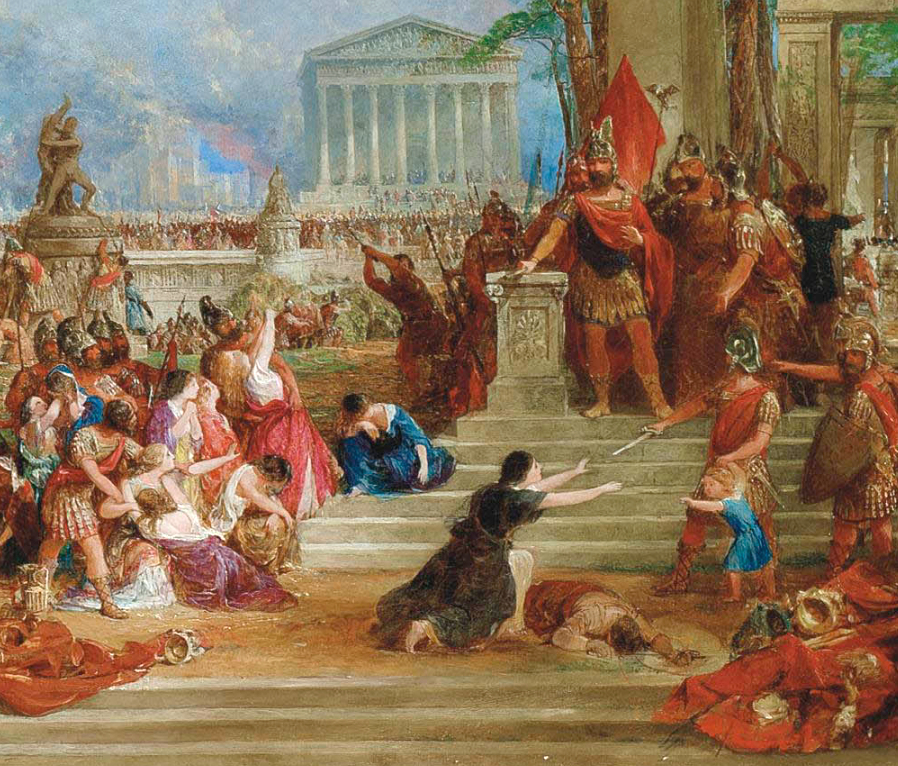
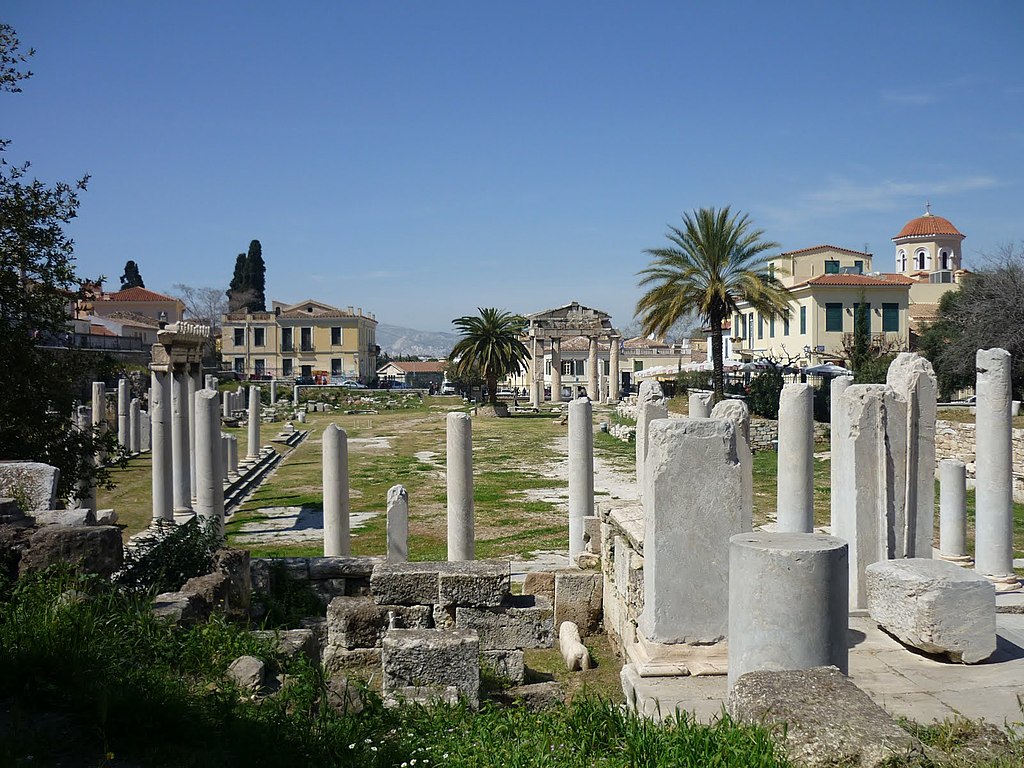
Greek Response to Roman Rule
The Greek response to Roman rule was mixed. Some Greeks embraced the new political and cultural order, seeking to collaborate with their conquerors and assimilate into Roman society. Others resisted Roman rule, seeing it as a threat to their independence and cultural heritage.
However, the Greek language, literature, and culture continued to be an important influence throughout the Roman Empire. Many famous Greek philosophers, poets, and scientists were well-known and respected in Rome and their works were widely read and studied.
Significance of Roman Greece
The Roman Greece period in ancient Greece was a time of great change and transformation, as the Greeks absorbed many of the ideas and institutions of their conquerors and continued to develop their own unique cultural and intellectual traditions. The legacy of Roman Greece can be seen in the many monuments, ruins, and artifacts that remain in Greece today, as well as in the enduring influence of Greek ideas and institutions on the Western world.
The Roman conquest of Greece may have marked the end of the Greek city-states, but it also marked the beginning of a new chapter in the history of Greece and the ancient world. The Greeks adapted to the demands of their conquerors and continued to develop their own unique cultural and intellectual traditions, and their legacy continues to shape the world we live in today.

